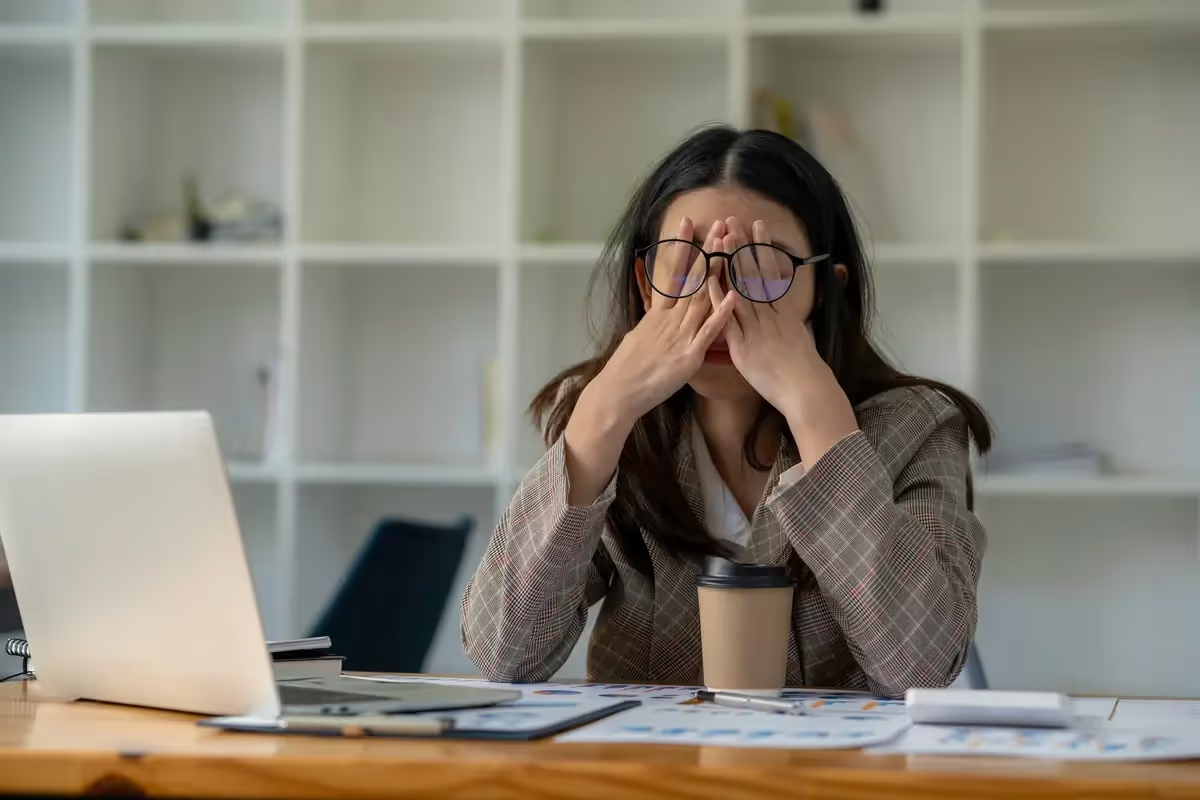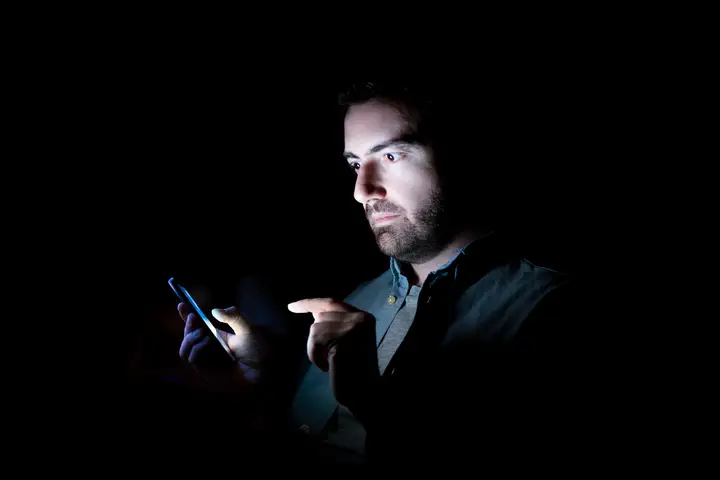People suffering from ADHD are more likely to have trouble falling asleep and getting up in time. Some may prefer having a flexible schedule, or starting work later in the day. When ADHD is diagnosed and managed appropriately, the sleep pattern can improve by itself. However, in some situations, the sleep issues may be attributed to a co-morbid sleep disorder, environmental factors or remain treatment resistant. It is well known that approximately 50% to 80% of adult patients with mental illnesses have difficulty in falling and staying asleep.
The most common sleep disorders in ADHD:
Circadian Rhythm Sleep Disorder:
Circadian rhythm disorder is by far the most common condition seen in teenagers, but also in some of the adults suffering from ADHD. They are more awake in the evening/night and wake up later in the day. This makes it difficult to adhere to a fixed work schedule or take on academic commitments- given this unusual pattern. In some cases implementing sleep hygiene and light therapy helps with this disorder. One of the biggest challenges remains the sustainability of a more in-control sleep cycle in ADHD. With a holistic approach an improvement may become attainable.

Narcolepsy:
Not many are aware of the link between narcolepsy and ADHD. The main symptom of this condition is “excessive daytime sleepiness”. A diagnosis of narcolepsy can be masked for many years, in people suffering from ADHD, and they can be seen by others as work-shy or lazy. Some studies indicate that people suffering from narcolepsy have a higher prevalence of ADHD, between 15-30%.
Some of the symptoms of narcolepsy: are excessive daytime sleepiness, changes in rapid eye movement (REM) sleep, cataplexy (sudden muscular weakness triggered by emotions), sleep paralysis, or certain types of sleep-associated hallucinations such as hypnagogic or hypnopompic. The symptoms of narcolepsy in someone suffering from ADHD can improve in the long term when having access to appropriate support.

Restless Legs Syndrome:
Because of the shivering impression that affects their legs, people suffering from restless legs syndrome find it challenging to fall asleep. Some studies claim that people with ADHD are more likely to experience this condition. The main symptoms of this condition – are the urge to move the legs, a sensation that begins while resting, worsening of symptoms in the evening, relief with movement, and nighttime leg twitching.

Sleep-Disordered Breathing:
The association between obstructive sleep apnea and ADHD is well-established in children. Sleep difficulty and daytime tiredness are common symptoms of sleep-disordered breathing. New research indicates a link between Obstructive Sleep Apnea, Obesity, and Attention-Deficit Hyperactive Disorder (ADHD).
Some of the symptoms of obstructive sleep apnea: episodes of stopped breathing during sleep, loud snoring, excessive daytime sleepiness, morning headache, irritability, and difficulty concentrating during the day.

Can Brown Noise Help With Sleep?
"The brown noise exists in the nature. Therefore, from an evolutionary perspective there may be a link and help some". More time and research are needed to precisely indicate the usefulness and limitations of different sound colours in adults suffering from ADHD". To read more about the brown noise in ADHD click here.
Conclusions
People suffering from ADHD are more likely to have disturbed, quality of sleep, patterns, and duration of sleep. Mental health and sleep are very closely connected, and those suffering from ADHD are much affected by this link. Beyond implementing sleep hygiene, there are many reasons someone might not be able to sleep well. In the general population, approximately 18% of people suffer from a chronic sleep disorder. While in people diagnosed with a mental health condition, including ADHD, more than half report having difficulties with sleep.
The journey of having a better sleep can be for some a marathon rather than a sprint. People suffering from ADHD have higher than average rates of certain sleep disorders in addition to generalised insomnia. The underlying sleep conditions may go untreated for years, because the ADHD symptoms can frequently overlap the symptoms of sleep disorders. This can become complex, since the sleep disorders can mask the inattentive ADHD symptoms.
If you identify experiencing symptoms of a sleep disorder, talk to your mental health professional or healthcare provider. Having the appropriate support can significantly improve your quality of life and well-being.

Private ADHD support in London and UK
- If you're looking for support in managing your ADHD symptoms, our practice is here to help. We offer private ADHD assessments that can provide you with a clear diagnosis and personalised treatment plan. To learn more about our approach to diagnosing and treating ADHD, visit the ADHD Assessment for Adults section. You'll discover how we can help you overcome the challenges of ADHD and achieve your goals.
Find out more about what happens during a Private ADHD Assessment.
References:
Sleep disorders in patients with ADHD: impact and management challenges - PubMed (nih.gov)
Attention-Deficit/Hyperactivity Disorder Patients May Have Undiagnosed Narcolepsy - PMC (nih.gov)
Associations of sleep disturbance with ADHD: implications for treatment - PubMed (nih.gov)
Disclaimer: The information is not intended nor implied to be a substitute for professional medical advice, diagnosis or treatment. All content, and information, contained in this article is for general information purposes only and does not replace a consultation with your own doctor/health professional
.svg)
.svg)





.svg)






